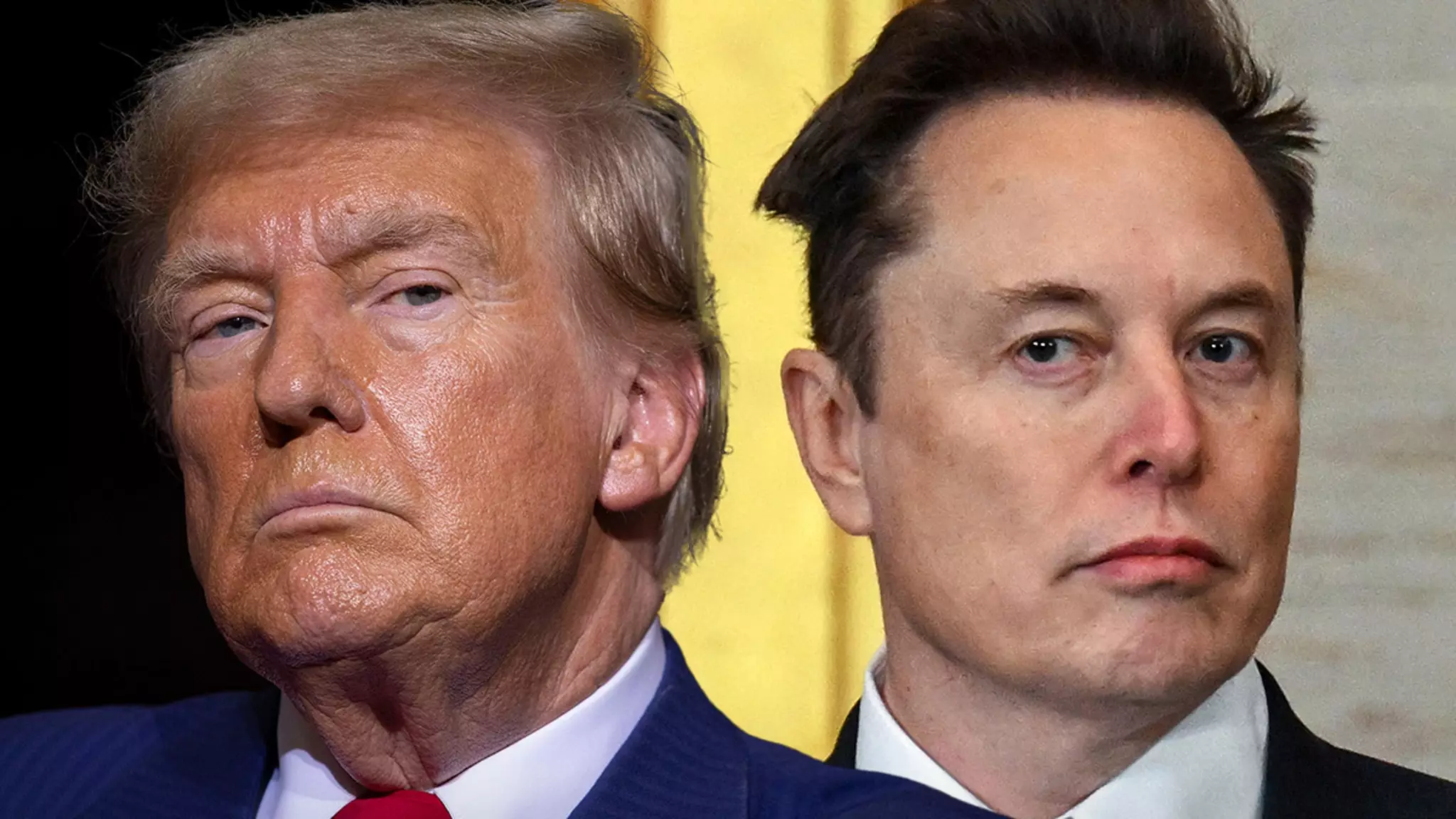The recent sparring match between Elon Musk and Donald Trump reveals far more than a mere social media quarrel; it exposes a deeper, strategic tussle for influence within the American political and economic landscape. Trump’s declaration on Fox News about potentially considering the deportation of Elon Musk underscores a level of personal animosity that transcends typical political discourse. Musk’s tentative response on X demonstrates a conscious effort to avoid escalation, but the underlying tensions suggest that this isn’t a fleeting spat—it’s a clash of ideology and power.
This confrontation embodies a broader contest over narratives: Trump positioning himself as the defender of American industry interests, especially against perceived liberal or progressive threats, while Musk epitomizes innovation but also symbolizes technological progress often intertwined with political debates about subsidies and government support. Their exchange underscores a deeper ideological schism—Trump as a populist populist rallying against modern startups receiving government largesse, and Musk as a visionary pushing for disruptive industries like electric vehicles, space exploration, and cryptocurrencies.
Critically, Trump’s accusations about subsidies serve not merely to discredit Musk but also to rally his base around a message of American self-reliance and skepticism of corporate welfare. His invocation of DOGE coin, suggesting that eliminating certain industries could save billions, is a provocative demonstration of his narrative that modern energy and tech giants are overly dependent on government aid. Yet, this perspective oversimplifies complex economic realities—disregarding the transformative potential of Musk’s innovations and the jobs they create.
The Political Power Play: Musk’s Resistance and the Threat to Traditional Revenue Models
Musk’s public rebuttal, particularly his threats to form a new political party if the “Big Beautiful Bill” passes, signals intentional political disruption. His characterization of the bill as “PORKY PIG PARTY” and his depiction of supporters as liars highlight his desire to mobilize a political countercurrent away from traditional party establishments. Musk’s willingness to challenge entrenched political interests illustrates his broader ambition to reshape the political landscape, leveraging his influence in technology and finance.
Moreover, Musk’s critique is rooted in economic concerns—he claims the bill will balloon the national deficit by $5 trillion and harm future industries. His use of provocative imagery, a Pinocchio with burning pants, serves to underscore the perceived dishonesty of the legislation’s proponents. Such rhetorical moves are designed to rally public opinion and leverage his persona as a truth-teller in a political arena often accused of dishonesty and corruption.
However, Musk’s stance raises questions about the sustainability of his disruptive approach in politics. His threats to create a new political party could fragment the conservative base, potentially weakening traditional alliances and reshaping electoral dynamics. The underlying implication is that Musk isn’t just a tech entrepreneur but increasingly a political force willing to challenge the status quo—something Trump, a seasoned political strategist, recognizes and seeks to counter.
The Broader Cultural and Economic Ramifications
The escalation between two influential figures—each wielding massive social followings and cultural clout—has implications well beyond their personal disputes. It underscores the increasingly blurred lines between technology, business, and politics in America. Musk’s promotion of innovation-driven industries aligns with a global trend toward embracing advanced technology as economic salvation, yet his confrontations with established political figures highlight ongoing tensions about regulation, subsidies, and national priorities.
Trump’s reactions point toward a strategy of rallying populist sentiments, framing Musk’s technological pursuits as exploitive of government generosity and emblematic of corporate elites disconnected from “real Americans.” Conversely, Musk’s confrontations reflect a push for technological progress as an antidote to economic stagnation, emphasizing the importance of innovation for future competitiveness. This ideological rift may intensify as both figures seek to cement their influence in the narrative of America’s future.
The ongoing feud reveals a larger truth: that leadership in today’s America is increasingly personalized and media-driven. The flashpoints—social media disputes, legislative threats, public accusations—operate as modern battlegrounds for ideological supremacy. If the battle continues to escalate, it could accelerate shifts in policy directions, electoral allegiances, and public perceptions about the role of government and private enterprise.
In this high-stakes power play, both Musk and Trump symbolize differing visions for America—one rooted in disruption and innovation, the other in traditional populism and protectionism. Their future interactions will likely influence not just their own fortunes but the political and economic course of the nation, illuminating the profound ways leadership is negotiated in the digital age.

Leave a Reply